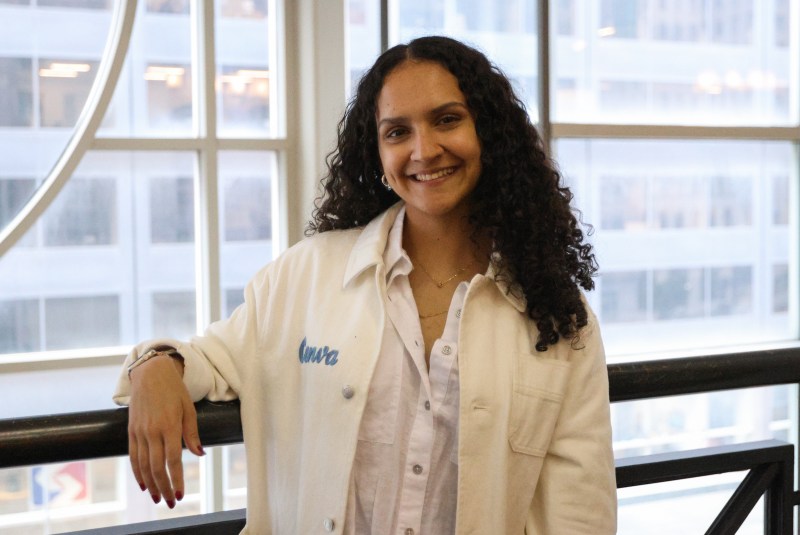The workshop “Beyond Words: Mastering Data Storytelling for Impactful Reporting” was held Wednesday, Aug. 23 at this year’s ONA conference, hosted by Canva and the University of Florida College of Journalism and Communications.
The data-heavy session featured a panel of six speakers, four of which were men: ProPublica data reporter Agnel Philip, University of Florida journalism senior Zachary Carnell, investigations database editor for The Washington Post Steven Rich and Randy Bennett, executive director for the University of Florida College of Journalism and Communications. The remaining women panelists were product manager Luisa J. Bider and data visualization specialist María Fernanda Callejón.
ONA Student Newsroom spoke with Callejón about her journey into data and what advice she has for women journalists working in data visualization.
(This interview was edited and condensed for clarity.)
Q: How would you describe the journey of your career path?
A: I studied journalism at the University of Navarra in Spain, and went abroad for one year at the University of Missouri. Since I was born, I had lived in Venezuela up until attending university. When I was in Missouri I knew I wanted to do communication studies, but I ruled out the possibility of working as a news reporter. I didn’t want to write about breaking news or become an editor. After I graduated from undergrad in 2019, I knew I wanted to specialize in data visualization and journalism. Once I had started my master’s program studying computer-assisted reporting, it became a lot more clear. With data, I felt that it just kind of made sense and that I felt I was doing what I was meant to do.
Q: What was your experience like after graduation?
A: When I was moving to Wales, Brexit — the withdrawal of the United Kingdom from the European Union — was still ongoing at the time along with the pandemic, so I had to avoid any regulations that would prohibit me from moving. It was super scary and everything was completely uncertain, but I had received a full ride and couldn’t turn down the opportunity. It worked out as when I was finishing up the program, I had accepted a six-month internship offer with Flourish. At this point, I knew I didn’t want to do newspapers anymore.
Q: Looking back at your past with journalism, what do you remember as the most formative?
A: Well I had stayed on the journalism track all throughout my undergraduate program, and I remember being very delusional, to where I was obsessed with data journalism. I was obsessed to the point where I didn’t see anything else. But I knew mostly theory and I just felt frustrated because I kept hitting a wall. I convinced myself that I needed to know everything before I could get started, but I realized that you don’t need to be perfect or proficient in the beginning.
Q: Is it absolutely necessary to know how to code with data journalism?
A: I felt that I needed to be some kind of coding wizard to be good. I needed to know everything about Python, R or Javascript. I would go online, look up YouTube videos, ask questions in online forums, and the reality is that a lot of people said it didn’t matter and it was based on what worked best for your type of project.
Q: Do you feel that there is a disparity between men and women in the fields of data and technology journalism?
A: I have lots of male colleagues but again, I see a fair share of women doing amazing work and projects. I’m also lucky, as my team at Flourish is all women.
Q: What advice would you give for aspiring female journalists who want to work with data more?
A: Imposter syndrome is normal, and it’s fine to have moments of insecurity. But don’t be afraid of the numbers and data. Data is incredibly useful and handy. I don’t think people are going to afford to not be data literate in the future, so get over any anxiety you have with Excel or Google Sheets. I also recommend not getting “analysis paralysis.” If you have an idea or a project that you’re passionate about, go for it. People will fight for you, especially if there are women at the table, they will bring you a chair. Be open, be honest, and while I’ve never been shut down, I know that isn’t always the norm. But I do believe that you can find people who will support you.
Follow her on Twitter @MafeCafe.






